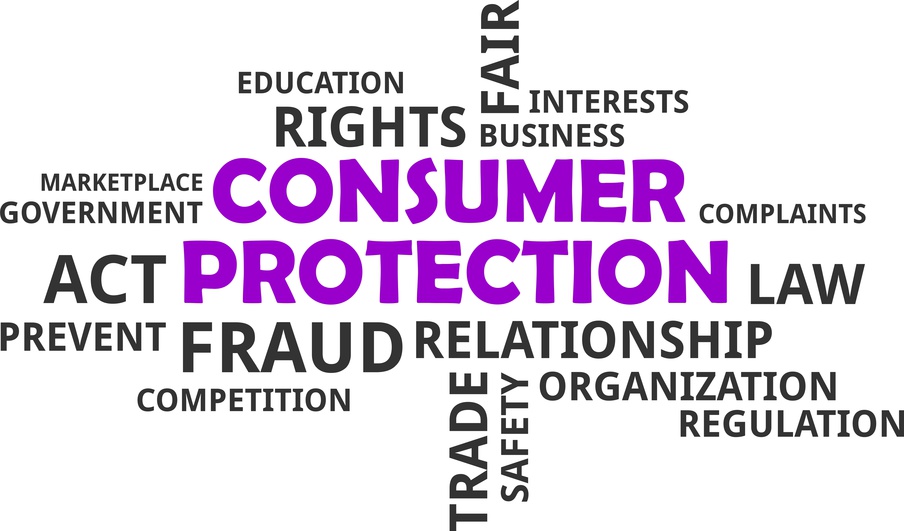- Posted on
- • Legal Advice
CONSUMER RIGHTS AND PROTECTION IN NIGERIA
- Author
-
-

- User
- Homachi Chidi-Lloyd
- Posts by this author
- Author
- Posts by this author
-

- User
- Joy Abutu Esq
- Posts by this author
- Author
- Posts by this author
-

Consumer Rights are legal protections ensuring fair treatment and safety for individuals purchasing goods and services. They empower consumers to make informed choices, receive quality products, and seek redress for any unfair practices, promoting transparency, accountability, and ethical conduct in the marketplace. They represent the fundamental entitlements of individuals when engaging in the marketplace, safeguarding them against unfair practices, ensuring access to essential information, and promoting their safety and well-being. The Federal Competition and Consumer Protection Act (FCCPA) of 2018 is the primary legislation on consumer protection in Nigeria. This report will delve specifically into the consumer rights provided under the FCCPA. It aims to examine the provisions that empower consumers and regulate the conduct of businesses in Nigeria. This analysis is based on a thorough review of consumer rights and available remedies under FCCPA. According to the FCCPA of 2018, consumer rights are as follows;
• Section 114: Plain Language in Communication Summary: Producers must ensure all notices, documents, or visual representations provided to consumers are in a prescribed form or, if no form is prescribed, in plain language that an ordinary consumer with average literacy can easily understand. The Commission can issue guidelines for assessing plain language. Section 114 (1)-(3)
• Section 115: Disclosure of Price Summary: Businesses must clearly display the price of goods and services in Nigerian currency. Consumers should not be charged more than the displayed price, and if multiple prices are shown, the lowest price must be honoured. Section 115 (1)-(3)
• Section 116: Product Labelling and Trade Descriptions Summary: Businesses must not apply misleading trade descriptions to goods or alter existing ones to deceive consumers. They also must not supply goods if they suspect the trade description is misleading or has been tampered with. Section 116 (1)-(3)
• Section 117: Disclosure of Reconditioned or Second-Hand Goods Summary: Businesses supplying used, second-hand, reconditioned, rebuilt, or remade goods must conspicuously label them as such.
• Section 118: Sales Records Summary: Businesses must provide a written record of each transaction, including their name, address, date, description of goods/services, unit price, quantity, total price before tax, applicable taxes, and the final total price. Section 118 (a)-(j)
• Section 119: Consumer's Right to Choose/Examine Goods (Bundling) Summary: Businesses cannot force consumers to purchase additional goods/services, enter into extra agreements, or buy from a third party as a condition of a sale, unless bundling offers a clear convenience or economic benefit to the consumer. Section 119 (a)-(c)
• Section 120: Consumer's Right to Cancel Advance Reservation, Booking or Order Summary: Consumers have the right to cancel advance bookings, reservations, or orders, subject to a reasonable cancellation charge. No cancellation fee can be imposed if the cancellation is due to the death or hospitalization of the person for whom the booking was made. Section 120 (1)-(3)
• Section 121: Consumer's Right to Select Suppliers / Loss or Damage to Displayed Goods Summary: Consumers are not responsible for loss or damage to displayed goods unless it's due to their gross negligence, recklessness, malicious behaviour, or criminal conduct. Consumers have the right to select or reject items from open stock. Goods purchased based on a description or sample must correspond to that description or sample. Section 121 (1)-(4)
• Section 122: Consumer's Right to Return Goods Summary: Consumers can return goods and receive a full refund if the goods are unsuitable for a specific purpose communicated to the supplier, or if they did not have a chance to examine the goods before delivery and they don't match the description, sample, or sales agreement. Section 122 (a)-(b)
• Section 123: General Standards for Marketing of Goods and Services Summary: Businesses must not make false, misleading, erroneous, fraudulent, or deceptive representations about goods or services, their properties, prices, or performance. Any performance claims must be based on adequate tests, and purported warranties must be genuine. Section 123 (1)-(3)
• Section 124: Right to Fair Dealings Summary: Businesses must not use physical force, coercion, harassment, unfair tactics, or take advantage of a consumer's disability, illiteracy, or inability to understand an agreement during marketing, supply, negotiation, payment collection, or any business transaction. Section 124 (1)-(2)
• Section 125: False, Misleading or Deceptive Representations Summary: Businesses making false, misleading, or deceptive representations, or failing to correct a consumer's misapprehension, are liable for damages and must make monetary restitution. Persons acting on behalf of a supplier must not falsely represent affiliations or engage in prohibited conduct. Section 125 (1)-(2)
• Section 126: Representation Test and Publication Testimonials Summary: Businesses promoting goods/services based on performance tests or testimonials must prove that the representation or testimonial was previously made/published by the person who conducted the test or gave the testimonial, or that they received written approval to publish it. Section 126 (1)-(2)
• Section 127: Unfair, Unreasonable or Unjust Contract Terms Summary: Businesses must not offer, supply, or contract for goods/services at unfair, unreasonable, or unjust prices or terms. Terms are considered unfair if they are excessively one-sided, inequitable, based on misleading representations, or not clearly brought to the consumer's attention. Section 127 (1)-(2)
Section 128: Notice Required for Certain Terms and Conditions Summary: Any notice or agreement provision that limits liability, assumes risk by the consumer, imposes indemnity obligations, or is an acknowledgment of fact by the consumer, must be conspicuously drawn to the consumer's attention, and the consumer must have adequate opportunity to comprehend it before entering the transaction. Section 128 (1)-(2)
• Section 129: Prohibited Transactions, Agreements, Terms or Conditions Summary: Any transaction, agreement, or term that defeats the purpose of the Act, misleads consumers, waives consumer rights, avoids business obligations, or authorizes unlawful acts is void. This also includes terms that limit liability for gross negligence, impose payment for damage, or require consumers to deposit identity documents or personal access codes. Section 129 (1)-(2)
• Section 130: Rights Pertaining to the Quality and Safety of Services Summary: Consumers have the right to timely and quality performance of services, use of defect-free goods required for services, and the return of their property in good condition. If services fail to meet standards, the consumer can request a remedy for defects or a reasonable refund. Section 130 (1)-(2)
• Section 131: Consumer's Rights to Safe, Good Quality Goods Summary: Consumers have the right to goods that are reasonably suitable for their intended purpose, of good quality, in working order, free of defects, durable for a reasonable period, and compliant with industry standards. If a specific purpose was communicated, the goods must be suitable for that purpose. Section 131 (1)-(2)
• Section 132: Implied Warranty of Quality Summary: There is an implied warranty that goods will meet quality and safety standards. Within three months of delivery, consumers can return goods that fail to meet these standards without penalty, and the business must repair, replace, or refund the price. Section 132 (1)-(2)
• Section 133: Product Safety and Recall Summary: The Commission promotes industry codes for monitoring product failures, defects, and hazards, investigating risks, notifying consumers, and recalling unsafe goods for repair, replacement, or refund. The Commission can mandate recalls if a business fails to act on unsafe goods. Section 133 (1)-(2)
Part XVII - Enforcement of Consumers' Rights Enforcement of a Consumer right usually is not automatic and the FCCPA outlines how consumers in Nigeria can enforce their rights when those rights are violated by businesses, service providers, or manufacturers. It provides legal pathways and institutional support to ensure that the rights conferred under the Act are meaningful and enforceable. Enforcement of Consumers’ Rights are provided for under Sections 146 – 155 of the FCCPA, 2018. These Sections are further explained below;
• Section 146: Consumer Enforcement: Consumers can resolve disputes by contacting the undertaking, the applicable industry sector regulator, or the Commission, or by directly approaching a court.
• Section 147: Regulator's Role: If an industry regulator, which is a government body or organisation responsible for overseeing and regulating a specific industry, can't resolve a dispute, they can end their process, allowing the consumer to file a complaint with the Commission. • Section 148: Commission Enforcement:
- Initiating Complaints: Consumers file complaints with the Commission. The Commission can also initiate complaints itself, or receive them from regulators or consumer protection groups.
- Commission's Actions: The Commission can dismiss frivolous complaints, refer them to regulators, or initiate an investigation.
- Outcomes: After investigation, the Commission can dismiss the complaint, issue an order, or issue a compliance notice.
• Section 149: Consent Orders: The Commission and the respondent can agree on order terms. This agreement can be registered in court as a consent order, potentially including damages for the complainant.
• Section 150: Compliance Notices:
- Issuance: The Commission issues compliance notices to undertakings engaged in prohibited conduct (after consulting relevant regulators).
- Details: Notices specify the non-compliance, required corrective actions, and penalties.
- Enforcement: Non-compliance can lead to premises closure, administrative fines, or court prosecution.
• Section 151: Civil Society Group Redress:
- Commission Support: The Commission collaborates with consumer protection groups on education, research, advocacy, and dispute resolution.
- Group Actions: Accredited groups can act to protect consumer interests, intervene in relevant matters, and report concerns to the Commission.
- Accreditation: Groups are accredited if they promote consumer interests and commit to the Act's purposes.
• Section 152: Court Redress: Consumers can pursue civil action for compensation or restitution in court if their rights were violated or they suffered loss, even after Commission investigation.
• Section 153: Written Assurance: The Commission can seek written assurance from undertakings engaging in detrimental conduct. Failure to obtain or observe this assurance leads to court proceedings to restrain the conduct. The Commission can also order temporary closure of premises.
• Section 154: Compensation Order (Court): Courts convicting an undertaking can order compensation for personal injury, loss, or damage, considering the undertaking's financial means.
• Section 155: Offences and Penalties: The FCCPC on convicting an offender can impose some penalties on the offender. Offence here means violating consumer rights. These penalties include;
- Penalties (Natural Person): can get up to five years imprisonment, or a fine up to N10,000,000.00, or both.
- Penalties (Body Corporate): A fine of not less than N100,000,000.00 or 10% of prior year's turnover (whichever is higher).
- Director Liability: Directors of corporate bodies can face penalties similar to natural persons.
The FCCPA 2018, with the FCCPC as the consumer protection authority, provides robust legal framework to protect the Nigerian consumers. It empowers individuals with clearly defined rights and offers avenues for redress when these rights are violated. Consumers are encouraged to be aware of these rights and to utilize the FCCPC’s mechanisms for complaint resolution to ensure they receive fair treatment and quality goods and services in the marketplace.
Works Cited Federal Competition and Consumer Protection Act, 2018.
